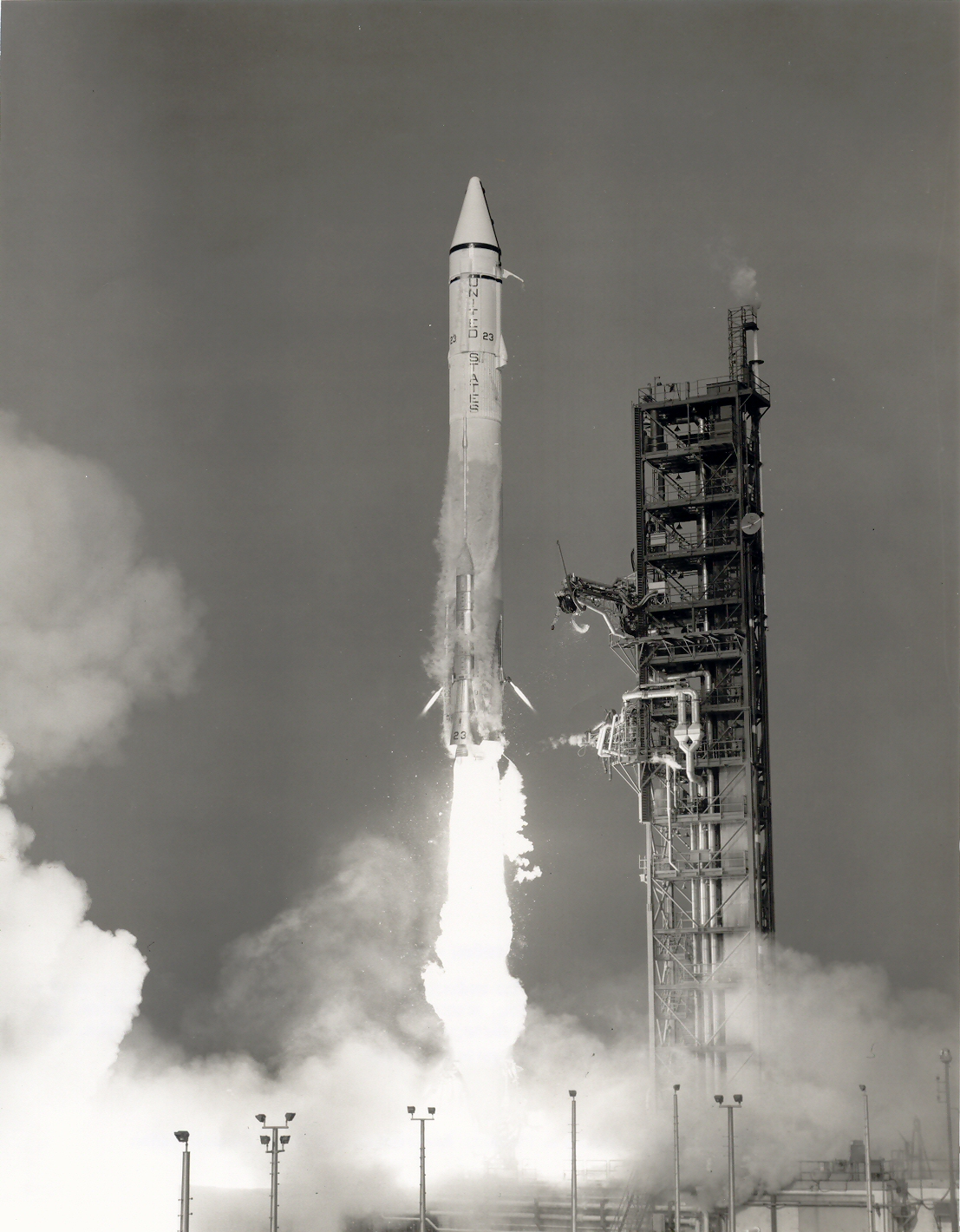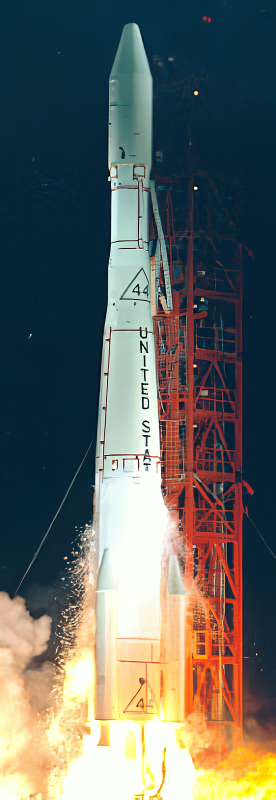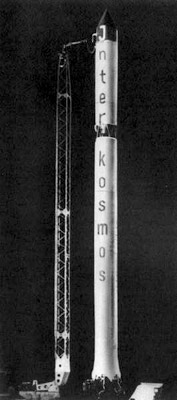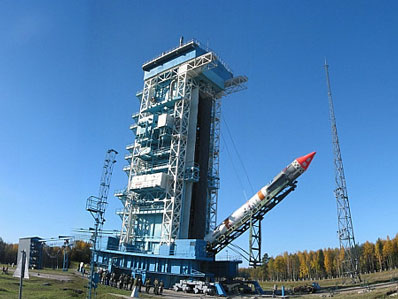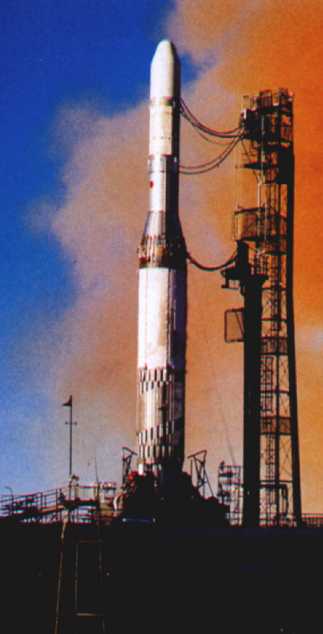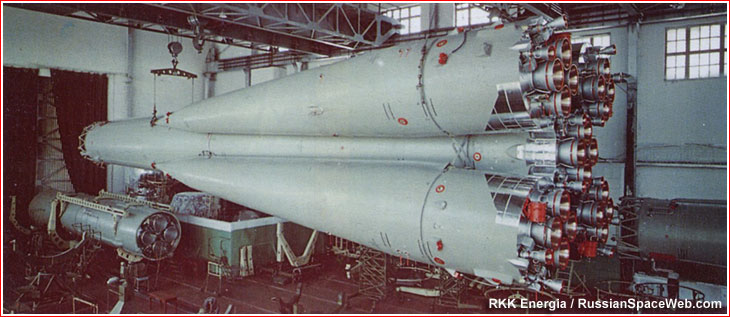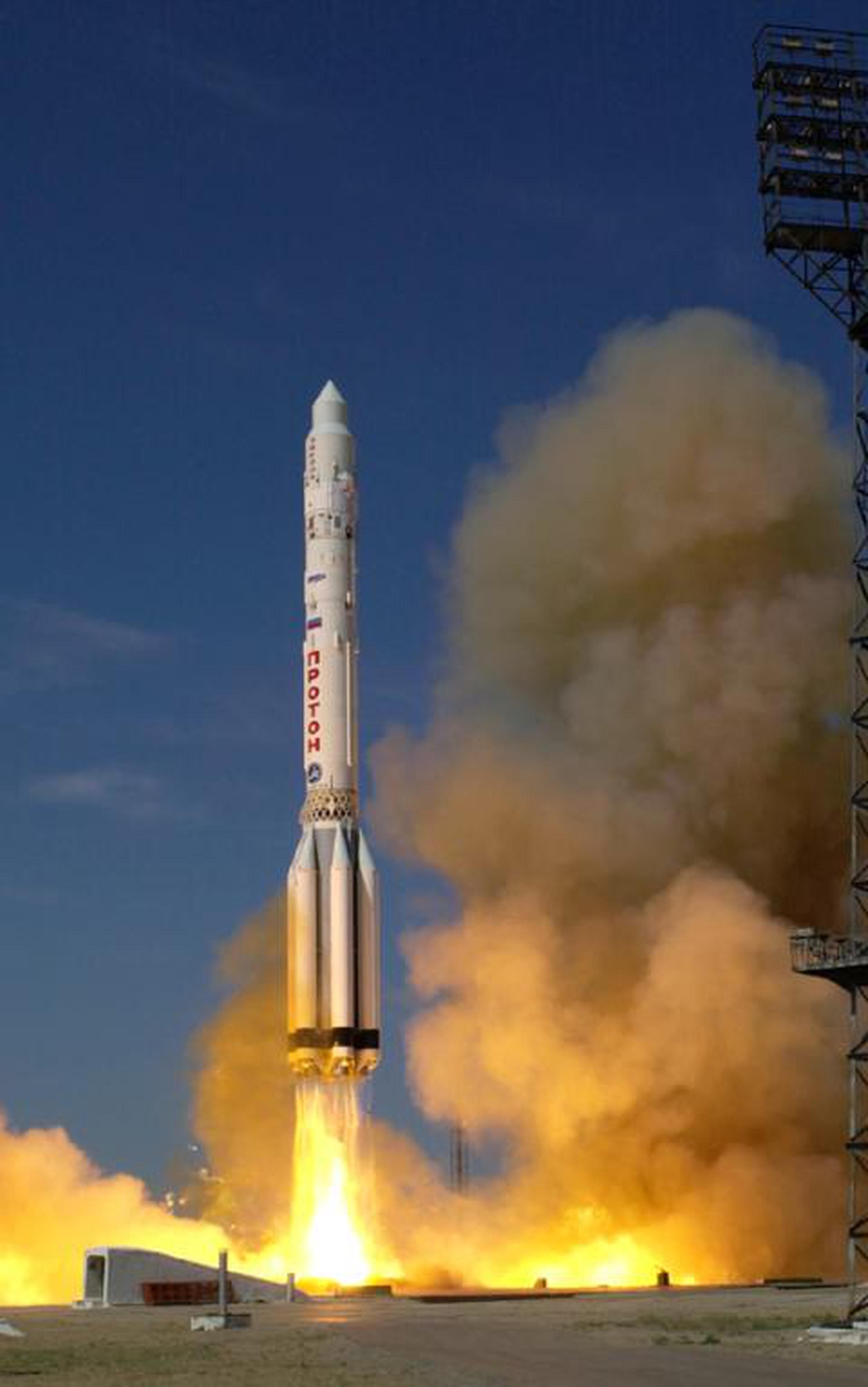Previous Spaceflight Launches
Filter by Agency, Locations or Vehicles
Show All LaunchesAtlas SLV-3C Centaur | OAO 2
Convair | United States of AmericaCape Canaveral SFS, FL, USA
Dec. 7, 1968, 8:40 a.m.
Thor Delta E1 | HEOS 1
McDonnell Douglas | United States of AmericaCape Canaveral SFS, FL, USA
Dec. 5, 1968, 6:55 p.m.
Status: Launch Successful
Mission:
HEOS 1 (Highly Eccentric Orbit Satellite) was an earth-orbiting, spin-stabilized satellite that was launched by ESA. The spacecraft objectives were to study interplanetary magnetic fields, cosmic rays, the solar wind, and the magnetosheath.
Elliptical OrbitTitan IIIB | KH-8 18
Lockheed Martin | United States of AmericaVandenberg SFB, CA, USA
Dec. 4, 1968, 7:23 p.m.
Kosmos 11K63 | DS-P1-Yu 17
Strategic Rocket Forces | RussiaPlesetsk Cosmodrome, Russian Federation
Dec. 3, 1968, 2:52 p.m.
Kosmos-3M | Sfera 3
Russian Space Forces | RussiaPlesetsk Cosmodrome, Russian Federation
Nov. 30, 1968, noon
Europa I | STV 1
European Launcher Development Organisation | FranceRAAF Woomera Range Complex
Nov. 29, 1968, 11:12 p.m.
Voskhod | Zenit-2 68
Soviet Space Program | RussiaPlesetsk Cosmodrome, Russian Federation
Nov. 29, 1968, 12:40 p.m.
Voskhod | Zenit-4 50
Soviet Space Program | RussiaPlesetsk Cosmodrome, Russian Federation
Nov. 21, 1968, 12:10 p.m.
Proton | Proton-4
Khrunichev State Research and Production Space Center | RussiaBaikonur Cosmodrome, Republic of Kazakhstan
Nov. 16, 1968, 11:40 a.m.
Voskhod | Zenit-2 67
Soviet Space Program | RussiaPlesetsk Cosmodrome, Russian Federation
Nov. 13, 1968, noon
